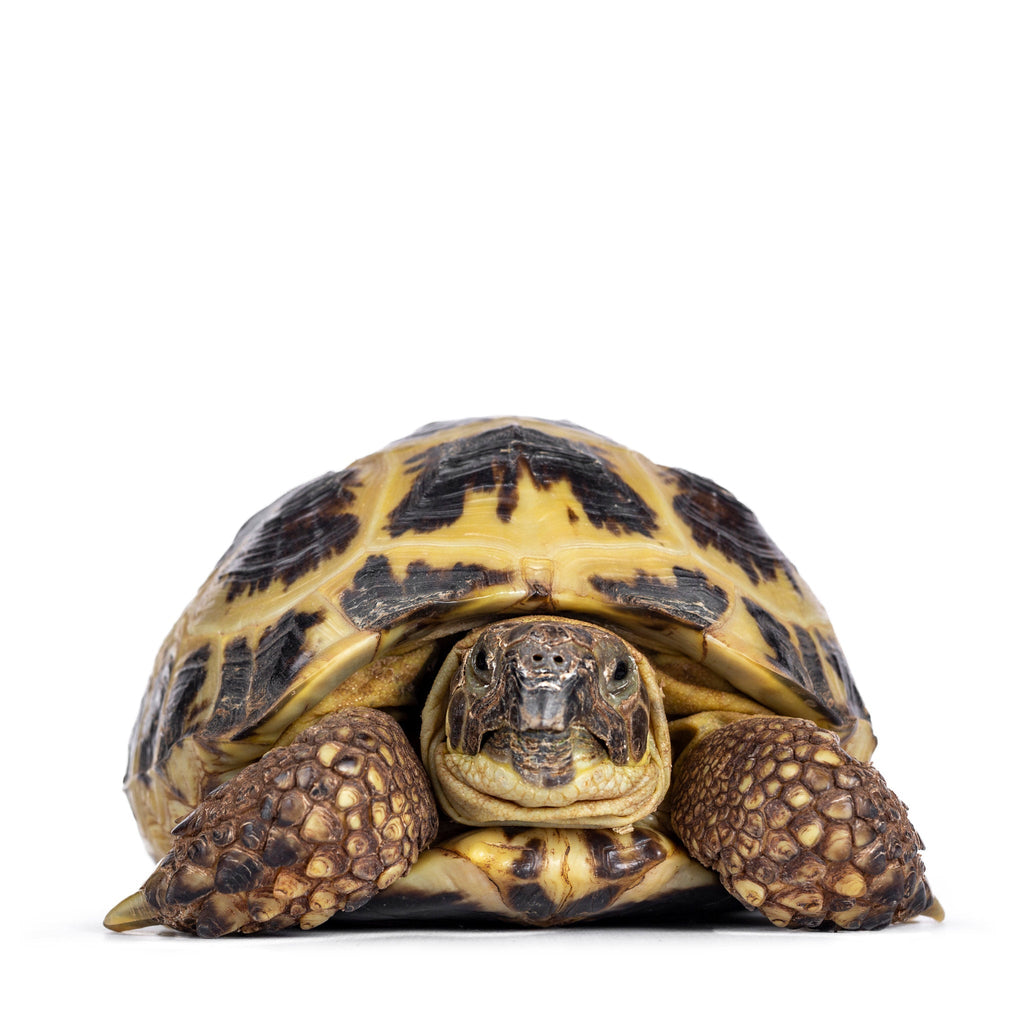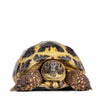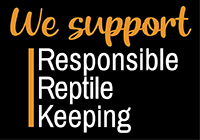Greek Tortoise Care and Bioactive Maintenance

Greek tortoise Caresheet
Last updated: Joshua Halter 3/4/2025
Difficulty: Advanced. Due to most being wild caught, long lifespan, dietary needs and space requirements.
Hatchling size- Hatching small, at about 1 inch
Adult size - 5-8 inches, with 10 being rare in some subspecies
The Greek tortoise is one of five Mediterranean chelonians in North Africa, southwest Asia and southern Europe. The other four species are Hermann's tortoise, the Egyptian tortoise, the Marginated tortoise, and the Russian tortoise. Being a variety of browns, golds and tans and smaller than other species, they are a more reasonable size to keep. Male Greek tortoises are typically smaller than females with both having quite the life span; some have been suggested to be over 100 years old but this has not been officially confirmed. Most Greek tortoises are imported, so be sure to evaluate your seller and understand what you are purchasing.
Requirements
- Enclosure: 4x2x2 for a baby/juvenile, minimum of a 6’ x 3’ for an adult.
-
Halogen Basking Bulb
-
Bio Dude Ceramic Heat Bracket
- Basking Bulb Fixture Cover
- Thermostat
- Bio Dude Solar Lamp Fixture
- ReptiSun 10.0 or Arcadia 12% T5 HO
- Bio Dude Solar Grow LED
- Lampguard Pro x2
- 50/50 mixture of Terra Sahara and Terra Firma
- Zilla 24/7 Digital Timer Power Center power strip timer
- Temperature gun
- Mister
- Bio Dude Digital Thermometer / Hygrometer
- Bio active kit
- Prusinius Isopods (giant orange or powder blue), Arid Springtails
-
Healthy and Edible Plants
- Opuntia Cacti
- Rosemary
- Hibiscus
- Alfalfa Grass
- Fescue Grass
- Opuntia Cacti
- Cork Bark Flats
- Water bowls / food bowls
- Vitamins
Terrarium size - 4x2x2 sized enclosure for juveniles, with a custom enclosure for an adult around 6x3x3 . Adults will need larger floor space than a 4x2x2, such as a tortoise table or custom built outdoor enclosure. 3x6 feet is the minimum size recommended for an adult as tortoises in general are very active. Due to their hardiness, they can tolerate a large portion of the southern United States outdoor temperatures, but If the winter temperatures get too low, the tortoise will need an inside enclosure to be safe from the elements. Outdoor enclosures are highly recommended for the long term well being of your tortoise. If you are unable to provide outside time, you should reconsider having a tortoise as a pet.
Substrate - The Dudes Terra Sahara and Terra Firma substrate mix and it needs to be deep as they will dig and forage almost constantly while exploring. Biodegradables in the soil will be mixed up as the tortoise and clean up crew dig and aerate the soil. It is recommended to utilize larger isopods such as Oranges or Blues to help aerate your soil in conjunction with your springtails. Utilizing a soil inoculant, such as the Dude’s Bio Shot will be very helpful for your ReptiSeeds, healthy edible plants and soil longevity .
Decor- Anything used for decor should be solid and sturdy, the enclosure needs to be designed with the expectation the tortoise will use all space available for enrichment and uproot plants, eat them, and knock over anything it can. Plants used need to be safe and edible and they can be transferred from the indoor enclosure to an outdoor enclosure; with the option to bring them inside if the temperatures drop too low.
https://www.youtube.com/watch?v=_fVtO78FPMI
Lighting- Active during the day, Greek tortoises will need a UVB light and a basking spot, with a Bio dude Glow and Grow LED or Bio Dude Solar Grow LED for the plants. We recommend using a ReptiSun 10.0 or an Arcadia 12%. If using a custom large enclosure, a 14% may be necessary if the tortoise is 14”+ away from the UVB bulb. You must use a Solar Meter in conjunction with the UVB.
https://www.youtube.com/watch?v=1q3P8T49NTA
Heating
- Basking - 92-100 F
- Ambient - 75-85 F
- Night time - 65-75 F
Humidity - 65-75% with drops as low as 40% during the day.
Daily clean water as all tortoises (and reptiles in general it seems) love to poop in their water bowls. They will submerge their whole head and body to drink and soak on their own, a flat short dish is best so they can climb in and out. Misting the enclosure daily with a sprayer or by installing a misting system will help with keeping the humidity at the levels needed.
https://www.youtube.com/watch?v=rpoubg_P8YA
Diet - Greek tortoises are herbivores and do best with a diet that's high in fiber and low in protein. Weeds such as dandelion, clover, plantain and wild strawberry, Leafy greens such as collard, mustard, kale and turnip, zucchini, broccoli, and shredded carrots can be offered sparingly. Commercial diets such as the Mazuri Tortoise Diet, and Timothy hay and fruit such as raspberries, strawberries and apples make enticing snacks and should be added in small amounts as 10% of their diet.
Handling - Like all tortoises they will tolerate minimal handling, but prefer to be set down on a stable flat surface so they can explore. They are very food driven and do well using food to associate with humans, this can be used to help them settle in a new home or environment.
Before purchasing, we recommend looking at various Tortoise specific groups on facebook and reddit. Tortoises are a lifelong commitment that have very niche needs that are not always the easiest to provide.
Have a question or need a recommendation? Reach out to our customer care team at Customercare@thebiodude.com
The Dude Abides
- Josh Halter










